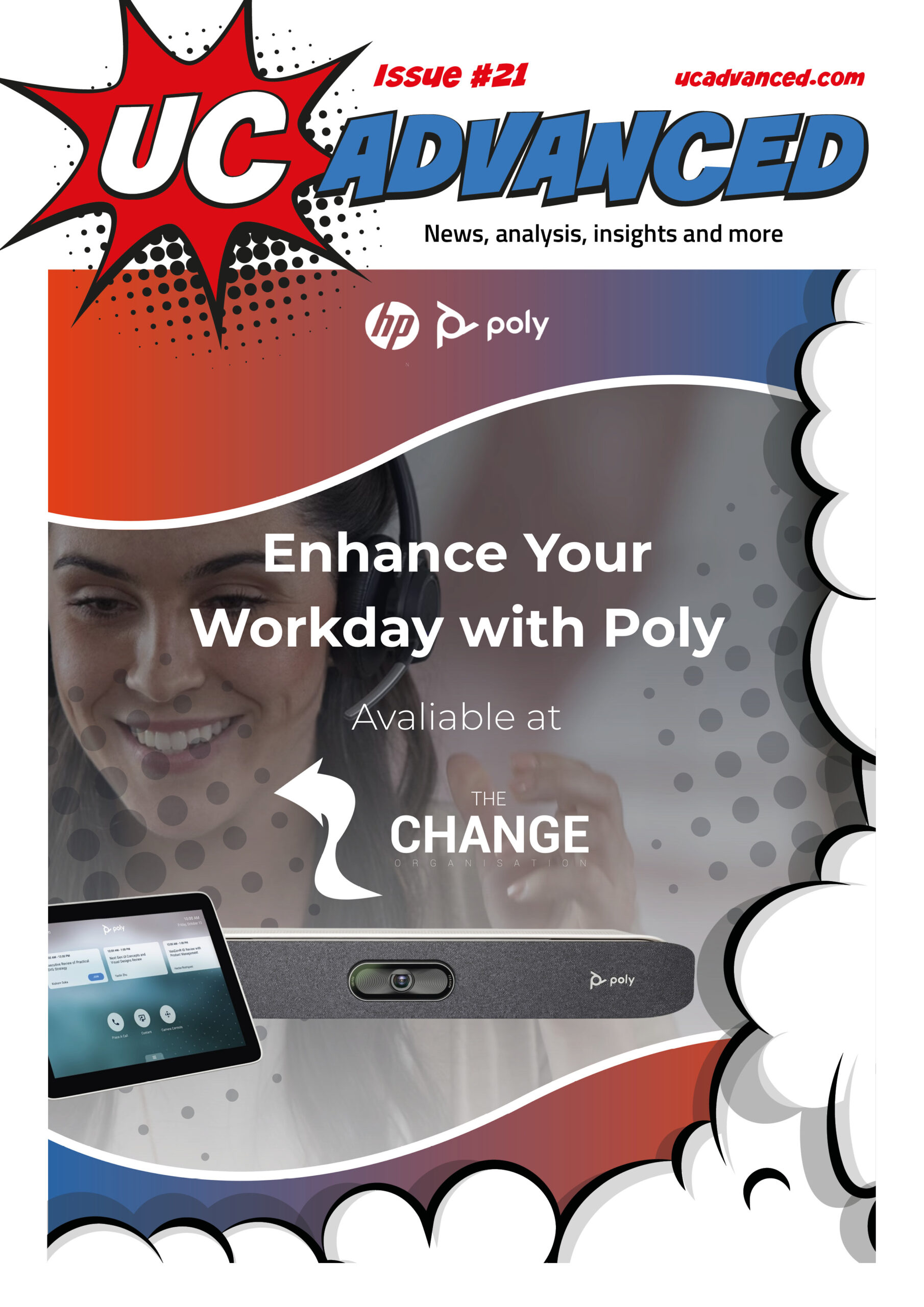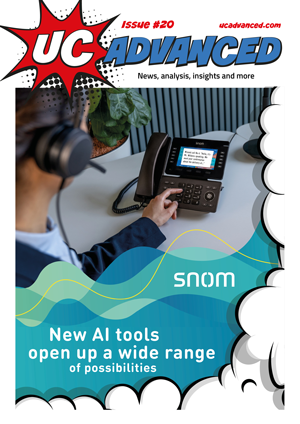As the workforce has spread to a hybrid set-up, how has the legal industry dealt with a demand to work from home? Along with the mass adoption of video collaboration, there were always going to be a few viral moments.
A personal favourite came from the legal world where a lawyer in the States had joined a virtual courtroom hearing as a cat and tried to proceed, reassuring the judge that “I’m here live, I’m not a cat.”
Thankfully those days are largely behind us, and courtrooms are back to being in-person affairs. However, the second-order effects of the pandemic have hit the legal sector as much as any business, with working from home a big part of modern law firms.
What’s more, as Andrew Lawton, Founder & CEO of ResKube points out, the change has been well received by those in the legal sector. “Like so many industries, the pandemic has shifted how the legal industry functions, even as the era of lockdown measures become a faded memory.
“Working from home has revolutionised lawyers’ lives. In a profession famed for long working hours and high workloads, the ability to conduct some of their work from home offered new-found freedoms.
“A recent survey revealed just how highly lawyers view these flexible working arrangements, with 87 per cent stating that they enjoy working from home, and almost half saying that they would look for another role if their firm asked them to come into the office for more than three days a week.”
Millennial Mindset
But while the lawyers are enjoying the hybrid working approach, those running the firms may not be as happy.
According to Steve Foster, Solutions Engineering Manager EMEA at Netskope, working from home was a privilege reserved for senior partners as, before the pandemic, there were cost implications to ensure that employees could work from home securely.
Another factor explaining why law firms may have been slow to adopt collaboration platforms in the past is that communication has largely been in person, and documents have been on paper rather than a screen. However Foster added that the next generation of lawyers is having an effect on the technology that’s used.
“Some of the traditional legal companies are slow to change because they have processes in place that have to be followed but haven’t changed for decades,” said Foster.
“The problem is that they have a workforce that is digitally native and are joining with the expectation of agility and frictionless use of technology because that’s what they used to. They’ve done their law degree, they’ve passed their bar exams, and they want to use digital tools like social media and instant messaging.
“The new workforce doesn’t work in the same way as those who have been in the industry for 35 years. Even now, the process for legal transactions around conveyancing is exchanging documents. These law firms still want that in place, but now they have people that want to be able to send legal documents digitally within seconds and get a response within minutes, and they have to be able to accommodate both.”
Steve Whiter, Director of Appurity, also said that attitudes within legal firms could be slow to change, but cited cyber security and an eye on regulation as a reason for any technological apathy.
“There are a number of areas that law firms are concerned about. Cybersecurity is a hot topic, and firms are very aware of ransomware and phishing attacks.
“While they are battening down a lot of their systems, they want to ensure that they have increased security on devices, without inhibiting productivity.”
Protecting Reputation
That eye on regulation is a key reason why UC&C platform adoption in legal may have been later than in other sectors.
Often lawyers will be handling sensitive information, and thus, need the appropriate measures in place to protect that data. However, with a quarter of lawyers acting as consultants following the pandemic, the largest risk for law firms is their reputation.
As Allen Drennan, Principal & Co-Founder at Cordoniq says: “Working from home comes with risks that can affect both company and employees. The lack of security when collaborating on documents, working with client and employee information, intellectual property leaks and hacks into meetings that are unsecured are all risks that legal services are facing daily.
“Client and employee confidentiality in the online remote working environment is paramount to the trustworthiness of a legal firm. It is critical that they can secure all data and information while working remotely when using workflow software products.
“Utilising secure video collaboration when working with colleagues on contracts, documents and client proprietary information can protect a legal services firm. Secure video collaboration can provide end-to-end encryption, secure recording and data transfer, offer strong administrative host controls and up to military-grade security. Adopting the use of workplace technology that is “built securely by design” is the best way for legal service providers to ensure the safety of their remote workers and clients.”
While the video collaboration platforms do have the necessary security to protect businesses from malevolent actors, Raquel Gomes, founder and CEO of virtual legal staffing firm Stafi said that training staff is a key component of keeping data safe.
“Confidentiality is of utmost importance for any law firm to ensure the privacy and security of their clients’ information, documents, and evidence. Staff members will be responsible for completing forms, agreements, contracts, and other critical documents necessary to advance a case. Any mistakes made during this process can significantly delay the legal process.
“To overcome these challenges, having trained and qualified people working with you is important, but that’s not all. You should also have the time and resources to make sure that your staff is working properly and support them when needed, which might mean making sure they can access the company systems or databases securely, as well as the proper use of communication tools like messaging or video conferencing apps.”
Remote Investment
Gomes also went on to say that “a reliable internet connection is crucial for efficient remote work” adding further necessity to investing in better technology in order to enable employees to work from home.
These investments primarily revolve around security, but also aim to ensure that employees can continue to work together in their day-to-day duties securely, as Drennan explains.
“Many legal services firms have stepped up to protect both work-from-home employees and their clients by making changes to online security throughout the organisation. Adopting the use of secure technologies such as VPNs for employees to log in and work on collaborative documents only on the company servers is one way that firms are adapting.”
Robert Fakhouri, a practising Trial Attorney at The Fakhouri Firm, LLC agreed, adding “In my office specifically, we have adapted to an entirely virtual environment despite maintaining a hybrid work environment of working from home and from the office.
“Our legal software provides remote access through a VPN system that provides top-of-the-line cyber security and the ability to work from anywhere in the world.”
Tech modernisation projects can become a sizable investment, and at the end of the day, these law firms have shareholder relationships to maintain.
It must be a touch frustrating if this investment goes unappreciated, as employees look to use their own applications to carry out work and small communications with their clients.
“Law firms are more agile now, which means the security level is often heightened because of the trends that come and go and affect the way you authenticate users,” said Whiter. “Shadow IT is a problem at the moment with WhatsApp being so prevalent.
“After the pandemic, employees don’t care what device they are on, they just want to get access to documents securely. So there has been a shift to become slightly more open if you like less secure, which has raised questions about how law firms secure their data.”
Here to Stay
Unfortunately for law firms, working from home looks set to stay, even if it is only two days a week.
As a result, a hurdle all of us have had to overcome is that of trust. Having faith in a lawyer’s ability to do their work may be a simple task, but the nature of the law industry and how clients pay for services means that firms need to trust lawyers to accurately track how long they have been working on behalf of each client.
“When it comes down to things like the timing, lawyers almost have to hit the clock when they start working on a matter and then stop the clock when they stop working on it,” said Foster. “Even if it’s working at home.
“This information has to be tracked because it’s all billable hours, and legal companies need to know that their employees aren’t just sitting there or out walking their dog, because they can no longer trust the work hours that a laptop is reporting.”
The solution though, as Foster adds, lies in the adoption of cloud technologies and the ability to run activity audits.
”The byproduct of having data and user activity moving through cloud security tools means there’s an audit of what users are doing, not just the fact they’re active, but what they’re doing. “Whether lawyers are uploading, downloading, saving, or editing documents, law firms now have an audit of those transactions. As a result, the byproduct of cloud adoption isn’t just security, it’s full visibility of what users are doing.”
That visibility the cloud affords firms is a key component to keeping the lights on because, as Lawrence Perret-Hall, Director, CYFOR Secure explains, “by the very nature of the work that lawyers do, primarily over email, involving sensitive data, they are highly vulnerable to phishing attacks.
“The worry is that with many either working remotely or in a hybrid model, it’s possible that ‘bad’ security habits from home could commute into the office with lawyers. Phishing is particularly dangerous, allowing hackers to access an employee’s device and then pivot straight into the corporate network.
“Fortunately, there are a number of solutions to enable safer working-from-home practices for legal services. The first step is to start with the basics: find out where the biggest vulnerability is. To do so, law firms need to conduct a cybersecurity audit to identify any gaps in security or weak points and allow time for proactive remediation before they are exploited by hackers.
“A full cyber audit should include measures like vulnerability scanning and identification and actionable insights to allow legal firms to remediate issues where necessary and therefore bolster their security posture.”
“Online video calls and other communication tools can help maintain a sense of involvement and facilitate collaboration and teamwork when people are not in the office.”
Wellbeing
With so many audits going on, and a lot of scrutiny on behaviour, it might appear that legal firms are slowly morphing into a big brother-style working environment.
Working from home practices has sparked a lot of innovative ideas, but throughout all the innovation, at the heart of much of the transition is an eye on employee health.
While balancing the school run with some casework may sound ideal, fatigue hits us all, as Doug Hargrove, Managing Director of Legal at Advanced explains.
“There are benefits to the social interaction and support that employees have in an office environment. Working alone can lead to a feeling of disconnection which can affect job satisfaction, even though having fewer office-related distractions can boost productivity.
“It is important to strike a balance and identify what works for each individual and provide the necessary digital tools for them to work effectively. Online video calls and other communication tools can help maintain a sense of involvement and facilitate collaboration and teamwork when people are not in the office.”
On top of the potential isolation, Hargrove added that a work/life balance has to be struck, and one of the larger problems is the distractions that we can all experience.
“Remote working may not suit everyone and it is important that employers respond to this by offering employees the choice to work from the office or remotely as far as possible.
Sometimes a few distractions are a good thing, as a short break from the computer might be exactly what a person needs in order to refresh their mind and deliver their best work. Even when employees are working remotely, managers should encourage regular breaks.”
Fakhouri said that distractions were one of his concerns, but said that he has added KPIs to remote workers, in order to introduce healthy competition as a motivation for productivity.
“There is always the risk of being distracted from your work while at home. To avoid that being an issue, my office has implemented a set of KPIs to keep all staff accountable for their work.
“Whether it is something as simple as the number of calls made in a week, to the number of medical records requested and received, I will know by the end of each week whether an employee has met their quotas.
“More importantly, we keep our environment competitive by having a roundtable once per week to go through entire staff KPIs. After weeks of implementing this new structure, I have seen employees across the board exceeding expectations.”










